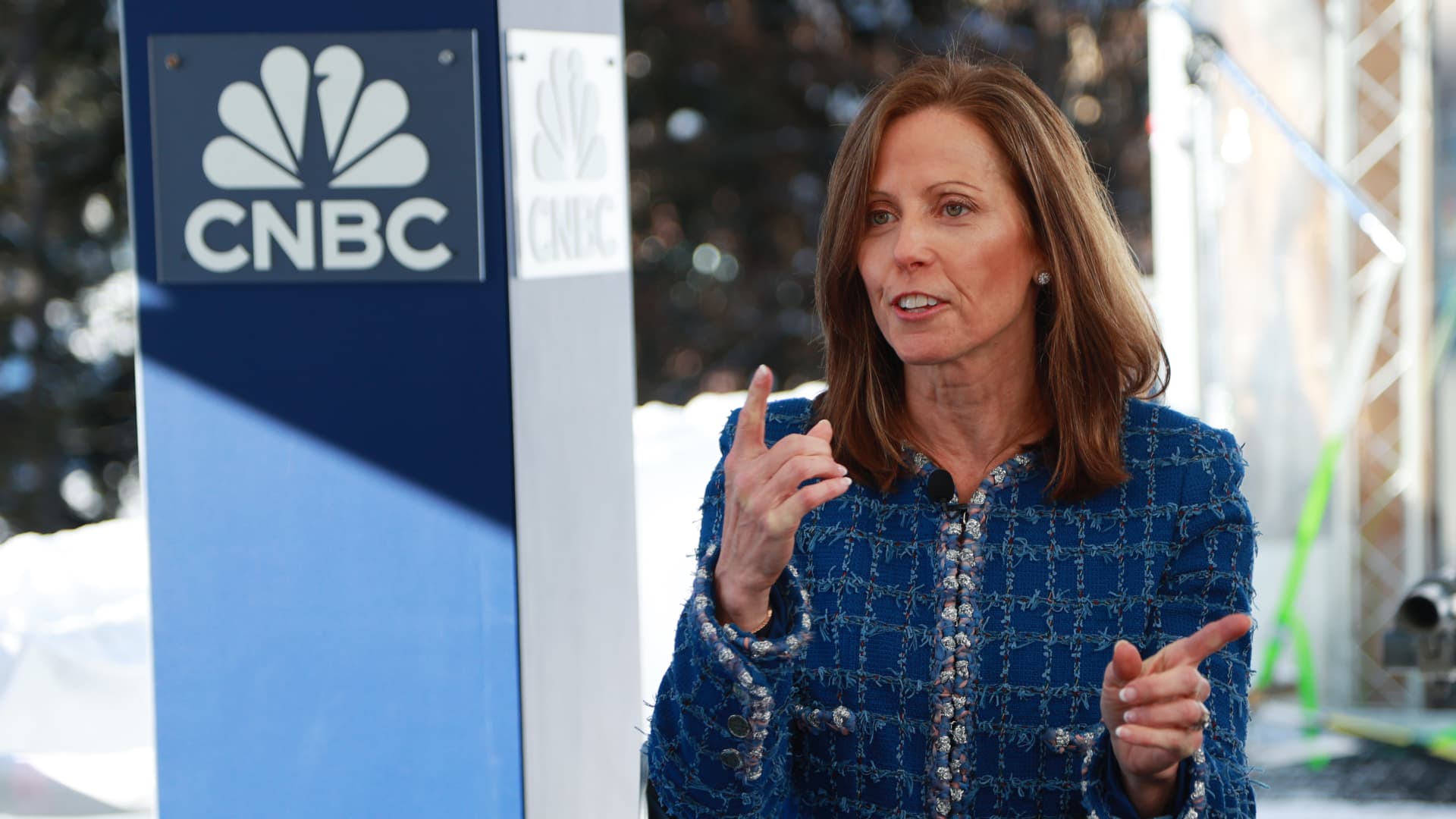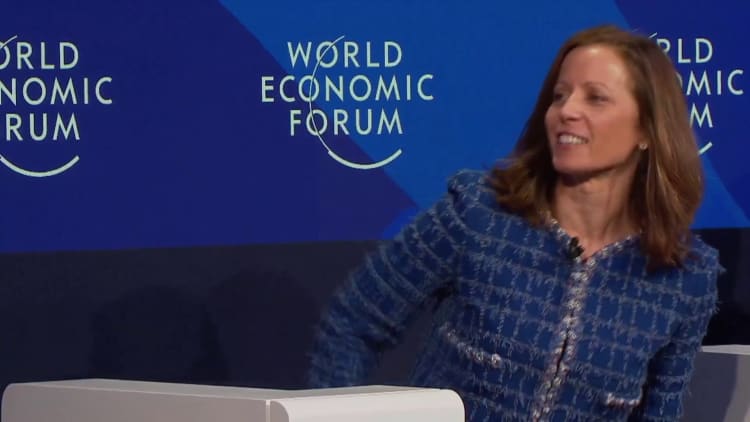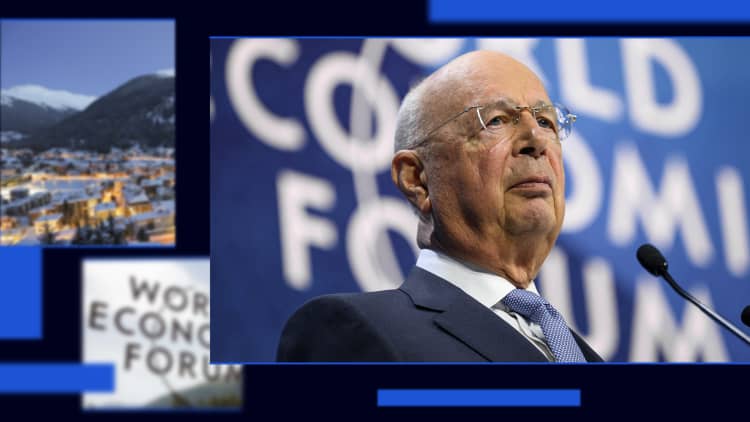Fed should be a ‘little concerned’ about starting rate cuts too early, Nasdaq CEO says


Adena Friedman, CEO & Board Chair NASDAQ, speaking on CNBC’s Squawk Box at the WEF Annual Meeting in Davos, Switzerland on Jan. 16th, 2024.
Adam Galici | CNBC
Nasdaq CEO Adena Friedman believes the Federal Reserve should be wary of cutting interest rates too soon.
Speaking at a CNBC-moderated panel at the World Economic Forum in Davos, Switzerland, Friedman said Tuesday that while “there are a lot of signals that would say that there should be rate [cuts] as we go through the year, the question is when they would start. And if I were the Fed, I would be a little concerned about starting too early.”
She explained that while inflation was heading in the “right direction of travel,” the Fed would also expect this to moderate, making it harder to bring rates down.
Friedman said that the U.S. central bank “also want to make sure that they feel that they’ve gotten to a state of stability around the rate before they start making significant moves in the interest rate space.”
The Fed held rates steady in December for the third time in a row, keeping the benchmark overnight borrowing rate in a targeted range between 5.25%-5.5%. Federal Open Market Committee members indicated that three rate cuts could be on the cards in 2024.
Between March 2022 and July 2023, the FOMC enacted a run of 11 rate hikes to combat spiraling inflation.
‘More confidence in the market’
As markets look to predict when interest rates might be cut and when the cost of capital might fall, she said that investors could start to think about how they model company earnings in the future more successfully.
In addition, knowing that inflation is coming down and that the cost of business is moderating, would also give companies more confidence, Friedman said.
“So I think all of that builds more confidence in the market, which of course does show up in the market values,” she said.
Friedman said that while market performance was “top heavy” last year, a broader-based improvement in valuations was emerging, including in lesser-valued companies.
“I think that’ll also drive an interest in investors wanting to put risk capital to work, which means … we could actually have the IPO (initial public offering) market open back up again,” she said, adding that around 85 companies had filed to go public on the Nasdaq.










